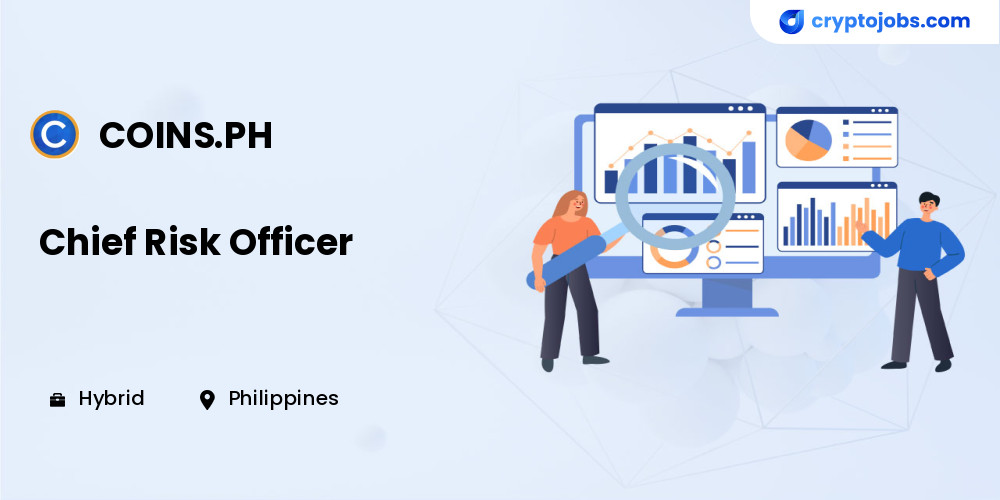C
Chief Risk Officer
Coins.ph
Full-time
Hybrid
Worldwide

What you'll do
- Identify financial, operational, credit, market, and liquidity affecting the institution.
- Conduct risk assessments and analyze the potential impact of identified risks on the business.
- Develop and implement risk assessment methodologies and tools.
- Develop risk mitigation strategies to minimize financial losses and ensure business continuity.
- Monitor and evaluate key risk indicators and risk exposures.
- Recommend corrective actions for risk-related concerns.
- Collaborate with different departments to ensure effective risk control measures.
- Develop and implement risk management frameworks aligned with BSP guidelines.
- Conduct internal risk assessments and prepare reports for regulatory agencies as needed.
- Develop and update risk management policies, procedures, and frameworks in accordance with BSP regulations.
- Establish internal control measures to enhance risk governance.
- Provide guidance and training to staff on risk-related policies and best practices.
- Prepare risk reports for senior management, the Board of Directors, and regulators.
- Maintain documentation of risk incidents, mitigation efforts, and compliance measures.
- Provide recommendations for improving the institution's risk posture.
- Create, implement, and monitor Coins.ph's risk appetite.
What we expect from you
- Bachelor's degree in finance, business administration, risk management, or related field.
- Significant experience in enterprise risk management and compliance and broad technical knowledge and expertise covering conduct of business matters, corporate governance matters and regulatory risk and regulatory change matters.
- Proven track record of delivering enhancements to processes efficiently.
- Highly developed leadership, strategic and critical thinking, and relationship management skills.
- Able to analyze problems, synthesize information, identify key issues and make recommendations.
- Strong interpersonal and communication skills, with the ability to convey complex risk concepts clearly.
- Experience with risk management software and analytical tools.
- High level of integrity, professionalism, and discretion in handling sensitive information.